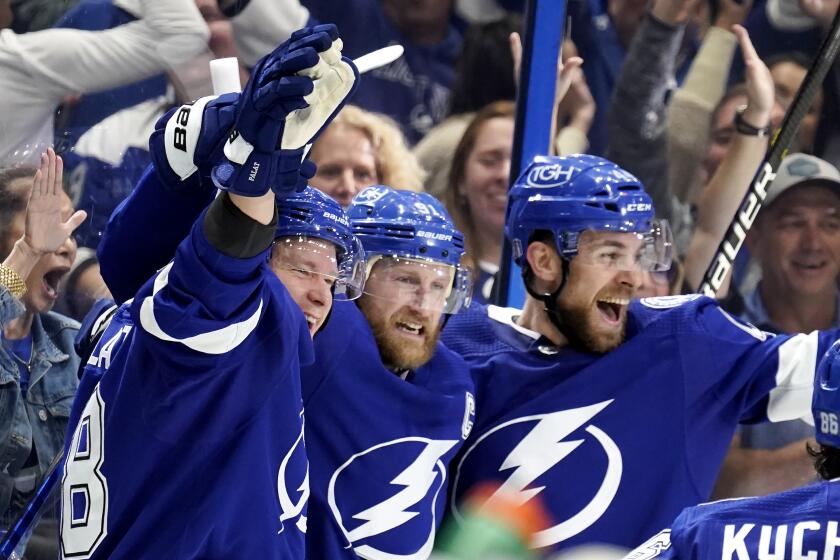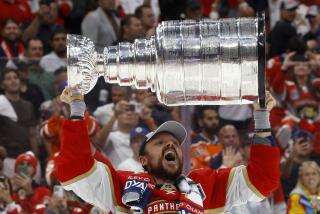Column: In NHL’s salary cap era, Lightning aim to become a Stanley Cup dynasty like no other
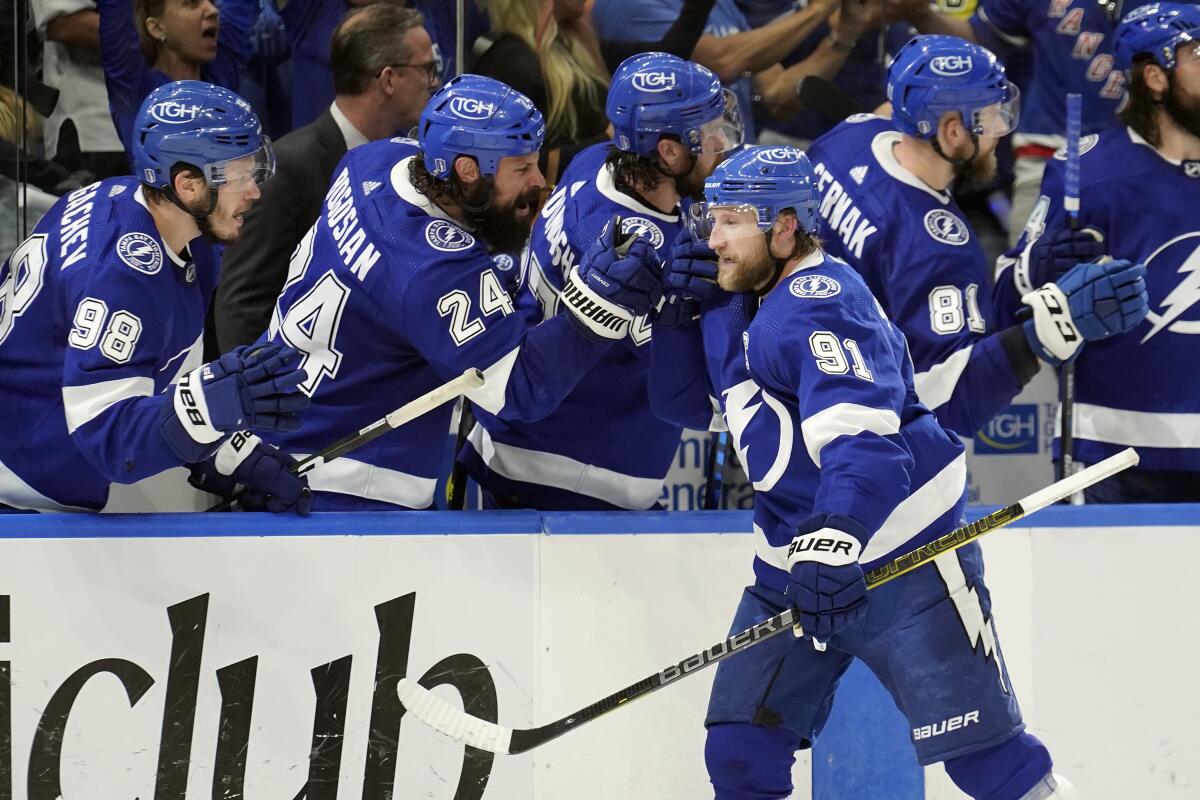
Stated simply, if it were easy to win the Stanley Cup three straight times somebody would have done it since the New York Islanders won four straight championships, starting in 1980.
Wayne Gretzky twice won back-to-back titles in the 1980s with the high-scoring Edmonton Oilers, who had seven future Hall of Famers. He won the Cup four times and they won five times in seven seasons, but he and they never won three in a row. Mario Lemieux played for Cup winners in 1991 and 1992 and was an owner when the Pittsburgh Penguins won in 2009, 2016 and 2017 but he never won three straight. Steve Yzerman led the powerful Red Wings to titles in 1997 and ’98 but they lost in the second round in 1999. No three-peat for them, either.
The Tampa Bay Lightning have a chance to earn a slice of hockey immortality and accomplish a feat that eluded those great Oilers, Penguins and Red Wings teams. They will continue their quest for a third straight Cup championship when they open the Cup Final on Wednesday in Denver against Colorado, which lost only two games in winning the West. The obstacles Tampa Bay has overcome to build a budding dynasty in a league that’s structured to promote parity makes its story unique and extraordinary.
Steven Stamkos scored twice to lead the Tampa Bay Lightning to a 2-1 victory over the New York Rangers in Game 6 to win the Eastern Conference final.
Despite operating under a salary cap that stayed flat when COVID-19 slammed NHL revenues, playing a pandemic-interrupted season that ended in a fan-less bubble in 2020 and making a quick turnaround after repeating as champions last July 7, the Lightning have maintained their drive and depth. They’ve nibbled around the edges of their roster to stay under the cap — and skated through a loophole by putting Nikita Kucherov on long-term injured reserve until the cap-less playoffs began last season — but they haven’t faded. They’ve gotten stronger.
“If they were to pull this off and win three in a row, to me that’s almost like winning five in a row in this era,” said Ducks general manager Pat Verbeek, who was Tampa Bay’s director of pro scouting, assistant GM and director of player personnel from 2010 to 2019.
The Montreal Canadiens set the NHL record by winning the Cup five times in a row from 1956 through 1960. In a six-team league they had to win only two playoff rounds, but they had otherworldly talent. After the NHL tripled in size, general manager Sam Pollock sustained their supremacy by fleecing weak teams out of prime draft picks. He gathered a pantheon of Hall of Famers, and they won four straight championships starting in 1976.
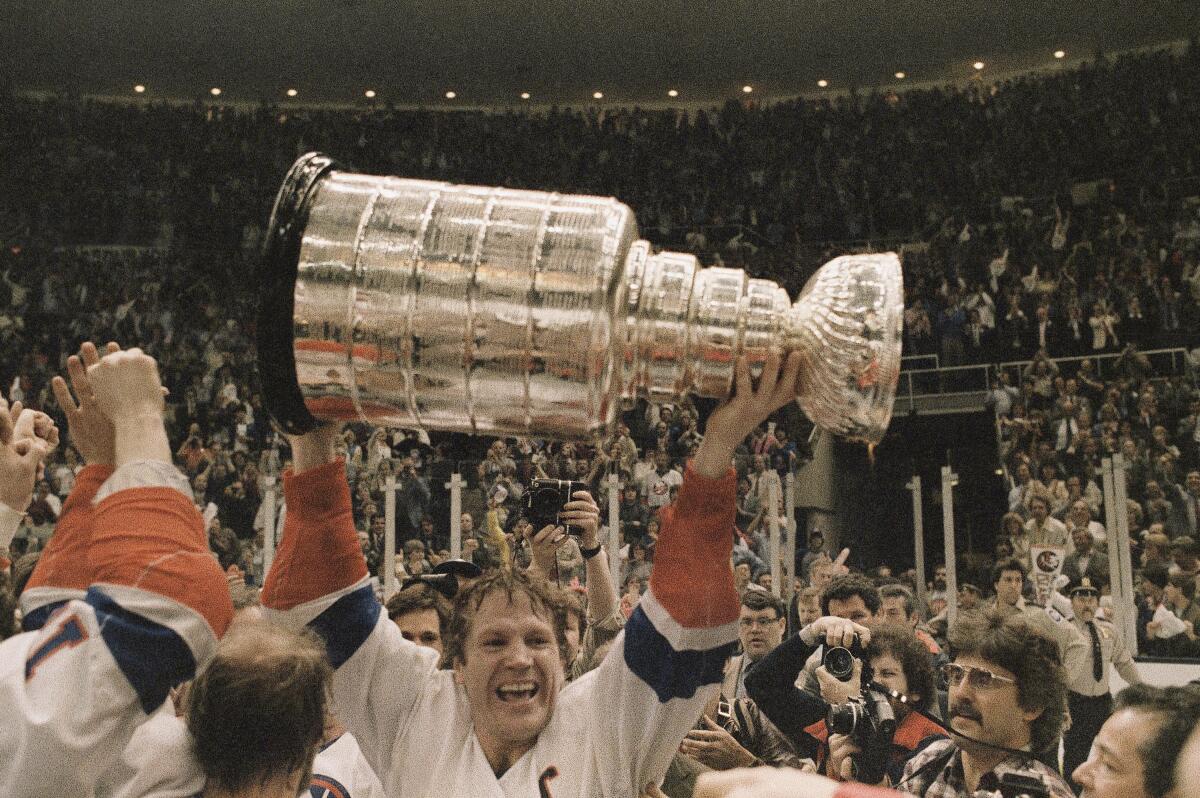
The Islanders, underappreciated because they played in the suburbs and in the shadow of the glamorous New York Rangers, were tough but brilliantly skilled. They also were the first Cup champion to win four rounds. Built largely through the draft by general manager Bill Torrey, they were favored to win in 1978 and 1979 but fell short, sparking rumors they’d be broken up.
Their fortunes changed when Torrey acquired Butch Goring from the Kings in March 1980 and he became a leader and ideal No. 2 center. Before they lost to the younger, fresher Oilers in the 1984 Final, the Islanders won 19 straight playoff series, a record that might never be equaled. Since the cap was adopted in 2005, only the 2016-17 Penguins and the Lightning have won back-to-back titles.
Gretzky has said he grasped the commitment needed to win the Cup when he passed the Islanders’ locker room after they beat his Oilers in 1983 and saw them quietly clutching icebags, not champagne bottles. The road to the Cup is the toughest in pro sports, putting a premium on physical and mental endurance.
“The toll it takes on players is tremendous,” said former Calgary Flames general manager Craig Button, an analyst and draft guru for Canada’s TSN network. “When you go in the playoffs everybody talks about the price you have to pay. But until you’ve won, you don’t really fully understand the price that you do pay.
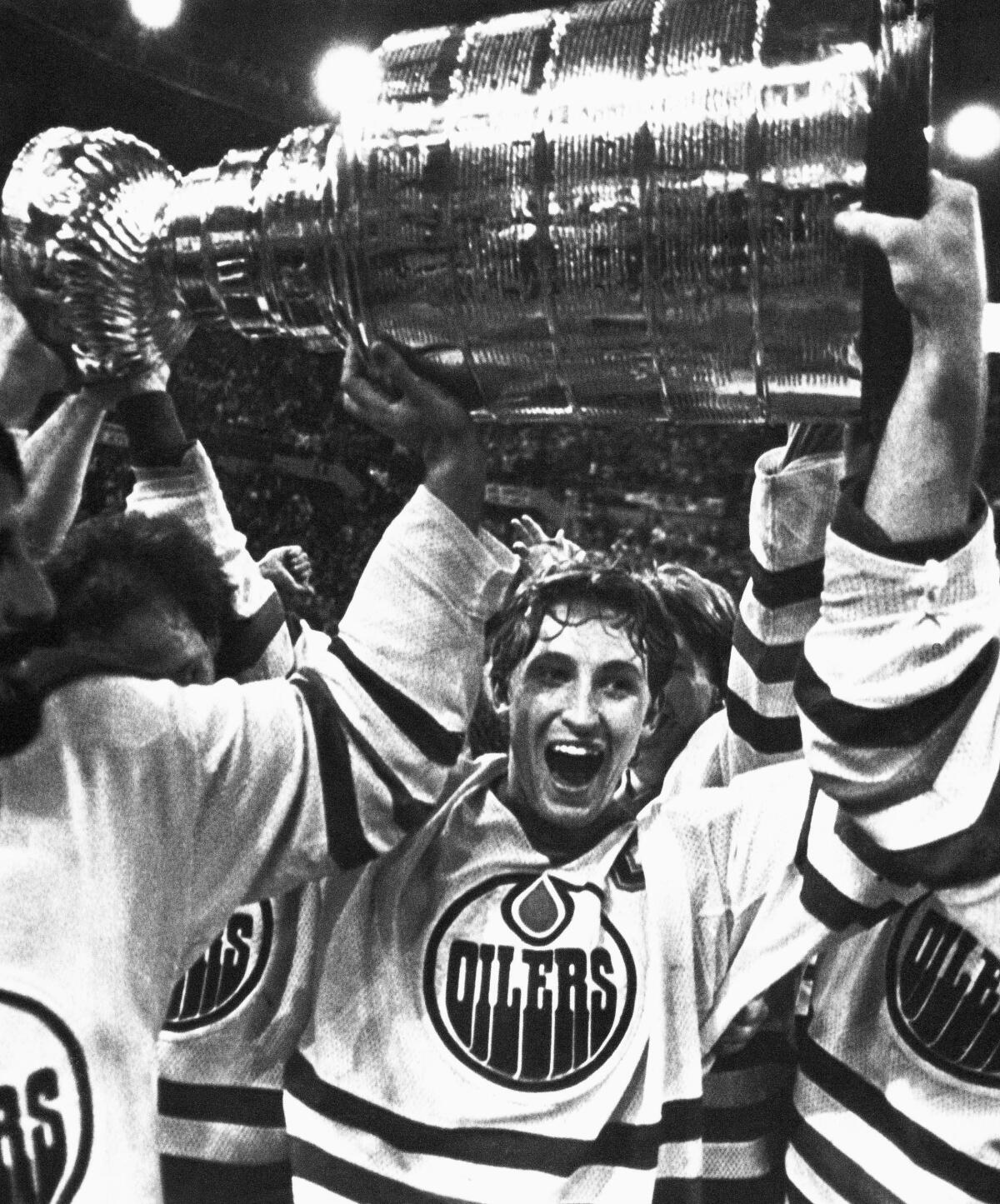
“Teams change. The salary cap era has created different challenges. But I think a big thing is, are you ready to saddle up and do it again? Because it’s a tremendous price. It’s a special group of people that are ready to continue to pay that price. That’s what makes it so unique.”
Like the Islanders and Oilers before them, the Lighting learned to win after absorbing a humbling loss. In Tampa Bay’s case it was being swept out of the playoffs by Columbus in 2019 after compiling the NHL’s top regular-season record. Verbeek, who began his NHL playing career near the end of the Islanders’ domination, remembers the Islanders’ competitiveness. “Once you win that first one, yeah, that’s the hardest thing. The second one, I think, there’s still a drive to win it because once you’ve won one, you don’t accept anything else other than winning,” Verbeek said.
The Islanders, of course, didn’t have to worry about salary cap limits. Right wing Mike Bossy, who scored at least 50 goals in each of his first nine seasons, was paid $500,000 a year during their dynasty. The current NHL minimum is $750,000.
The salary cap is expected to rise $1 million to $82.5 million next season, making it difficult to keep successful teams together. Tampa Bay general manager Julien BriseBois has been creative: he brought in forward Barclay Goodrow in 2020 but had to trade him to the Rangers for a draft pick before this season. But BriseBois managed to add former Duck Corey Perry as a free agent, and Tampa Bay has benefited from his abrasiveness and instincts around the net. Sacrificing the future for the now, BriseBois traded two first-round picks to acquire Brandon Hagel from Chicago. He also sent a prospect and draft pick to Ottawa for forward Nick Paul and persuaded Ottawa to keep 44.5% of Paul’s salary this season.
Connor McDavid is poised to break Wayne Gretzky’s playoff points record. Gretzky welcomes the challenge to his greatest one title.
“Julien BriseBois has done a fantastic job doing that, and he’s done other little things to keep things fresh,” Verbeek said. “The main core has always been there but the peripheral guys, he’s done different little things to keep that energy, that motivation going.”
Lightning coach Jon Cooper on Sunday called his team’s past two Cup titles a dream he never imagined would come true. To have a chance at a third championship in a row, he said, “is unthinkable.” Yet here they are, four wins from a three-peat. The formidable Avalanche will test the Lightning more than they’ve been tested before, but to get this far is a testament to Tampa Bay’s talent and will and the wonder of making the impossible very possible.
More to Read
Go beyond the scoreboard
Get the latest on L.A.'s teams in the daily Sports Report newsletter.
You may occasionally receive promotional content from the Los Angeles Times.

